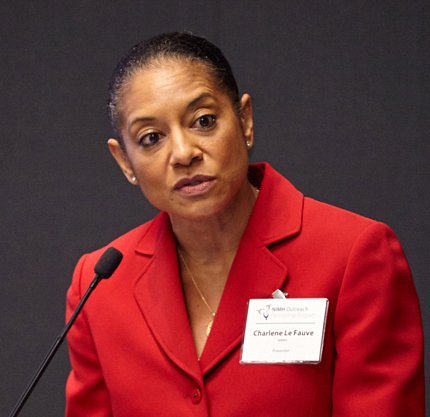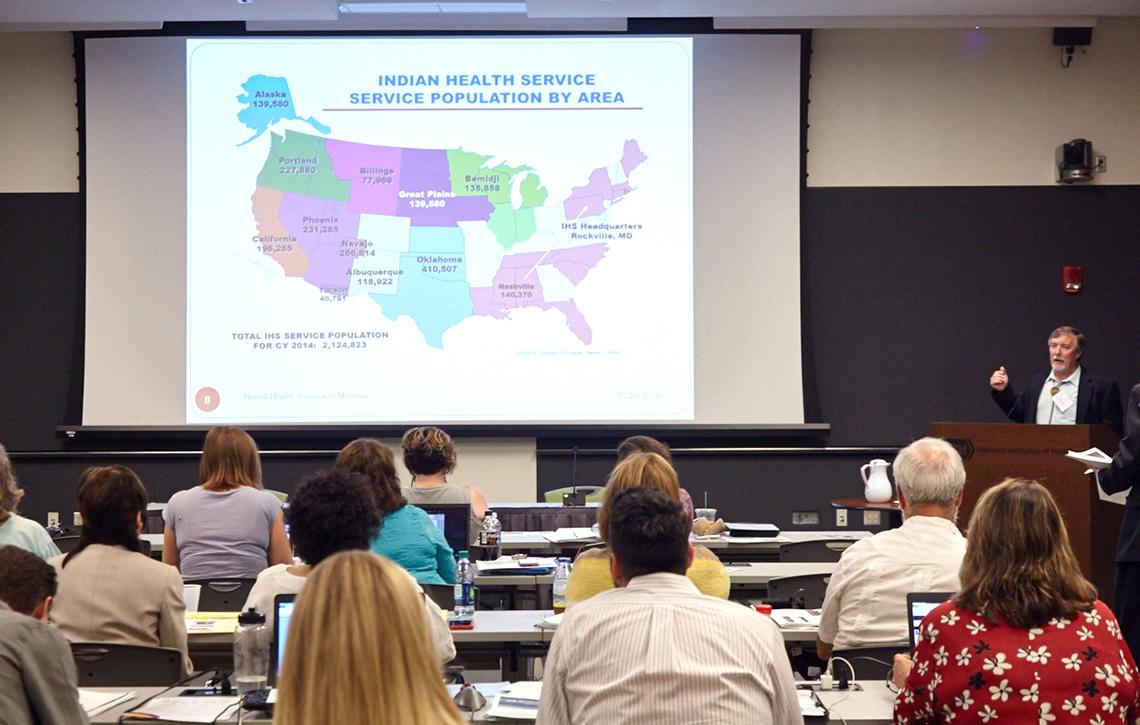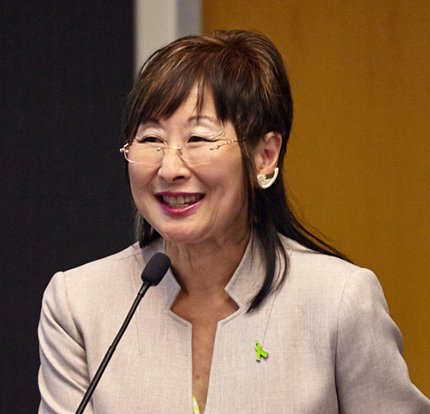NIMH’s Partners Target Disparities In Access to Care

Persistent disparities in accessing mental health care were high on the agenda as representatives of grassroots organizations from every state recently gathered at NIH for the 16th annual meeting of the National Institute of Mental Health Outreach Partnership Program. They heard about the latest mental health research and talked with NIMH leadership about some of the most pressing mental health issues affecting their communities. The OPP supports a nationwide network of 55 state mental health organizations—the NIMH Outreach Partners—that aims to increase the public’s access to science-based mental health information.
Some 55 percent of U.S. counties have no psychiatrists, psychologists or clinical social workers. This shortage of mental health specialists is especially challenging in minority communities. Dr. Charlene Le Fauve, chief of mental health disparities research and deputy director of NIMH’s Office of Research on Disparities and Global Mental Health, described interventions to improve access to care. She highlighted the NIMH-funded Community Partners in Care, a unique collaboration between researchers at the University of California, Los Angeles, and RAND Corp. and partners from more than two dozen community agencies to improve depression care in under-resourced African-American communities.

Dan Aune of Mental Health America of Montana, the NIMH Outreach Partner for Montana, described MHA MT’s work to bring sustainable and culturally appropriate mental health services to tribal communities. American Indian and Alaska Native (AI/AN) communities experience significantly higher rates of historical and intergenerational trauma, mental distress and suicide compared to the rest of the U.S. population. Staffing issues and shortages of highly skilled providers limit AI/AN access to mental health services at Indian Health Service and tribal health care facilities. MHA MT trains tribes on how to offer services with the right people, with the right process at the right place. This means adopting a treatment model that is person- and family-centered and trauma-informed. The right process refers to approaches such as integration of cultural healing practices, regular treatment team meetings and supervision. The right place means meeting clients where they are, whether it’s at home, school, a cultural activity or by phone.

Stacie Hiramoto, director of the Racial and Ethnic Mental Health Disparities Coalition at Mental Health America of California, described this statewide policy effort to reduce disparities in access to care among racial and ethnic minority communities in California. REMHDCO, funded through Proposition 63—the State Mental Health Services Act—is part of the California Reducing Disparities Project, which focuses on prevention and early intervention strategies. Five special population reports have been developed for African-American, Latino, Asian/Pacific Islander, Native American and lesbian, gay, bisexual, transgender and questioning communities to highlight community-defined approaches. REMHDCO also produced short reports and fact sheets on Armenian, deaf and hard-of-hearing, Russian speaking, Middle Eastern and Southwest Asian, refugee and asylum-seeking and developmentally disabled communities.
